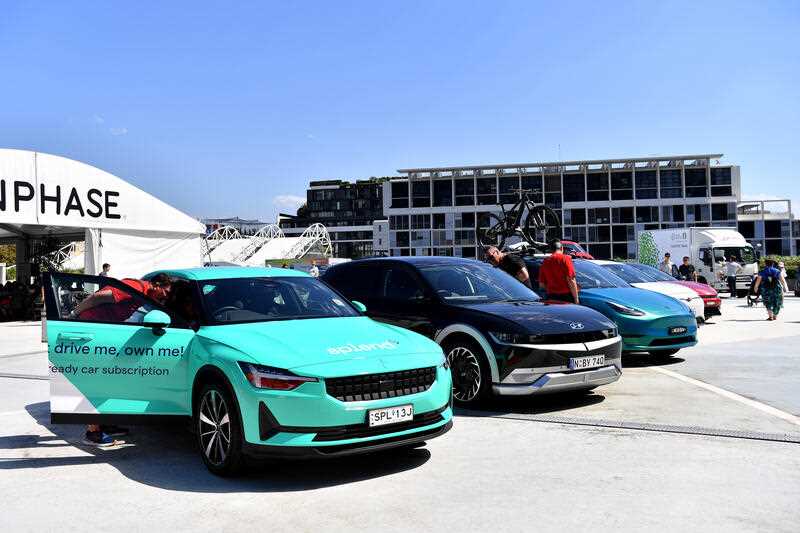One of the world’s leading automakers could boost the number of electric vehicles it brings to Australia if the federal government changes its policies, a Sydney event has heard.
Polestar’s Australian managing director Samantha Johnson made the announcement at Australia’s biggest electric car show in Sydney on Sunday, telling Fully Charged Live attendees the brand was closely watching developments in the country’s proposed National Electric Vehicle Strategy.
Her comments followed record sales for electric vehicles in February and came just days after the federal government had been tipped to launch a new electric vehicle policy.
Consultation on a national strategy closed in October last year, attracting more than 500 submissions.
Ms Johnson said the industry was eagerly waiting for one of the biggest elements discussed in the consultation – a fuel efficiency standard – to be introduced in Australia.
A standard would set a carbon emissions target for vehicle manufacturers in Australia, ensuring they balanced the number of high-polluting vehicles they imported with zero-emission options.
“Fuel efficiency standards are needed for not just Polestar but all companies to bring in EVs into Australia,” she told attendees.
“We’re supposed to be the lucky country but we’re so behind on sustainability and bringing cars into Australia.”
Moves to introduce a fuel efficiency standard would give more automakers the confidence to import electric cars into Australia, Ms Johnson said, and Polestar would ramp up production for the country.
“When you have government policies that support EVs, decision-makers in the head office in Polestar will say, ‘okay, Australia are doing everything to bring EVs in, they’re going to have a lot of demand, let’s support them and we’ll create production for them and we’ll prioritise them for Australia’,” she said.
“It’s really important that government comes on board.”
Total Environment Centre energy market advocate Mark Byrne also advocated for policy changes at the Fully Charged Live event, telling an audience several national policy changes were needed to help Australian motorists make the transition to zero-emission transport.
Electric vehicles made up 3.8 per cent of new car sales in Australia last year – a figure Mr Byrne said would mean high-emitting vehicles would stay on the roads “for the next 10 to 12 years”.
“We really need governments to come to the party,” he said.
“Some of the things that need to happen are stopping support for fossil fuel rebates for (the) mining industry and agriculture, we need to introduce a fuel efficiency standard, and also a cash-for-clunkers plan so we get rid of the old cars on the road.”
The federal government is expected to release a response to the National Electric Vehicle Strategy consultation before the May budget.
By Jennifer Dudley-Nicholson in Sydney



